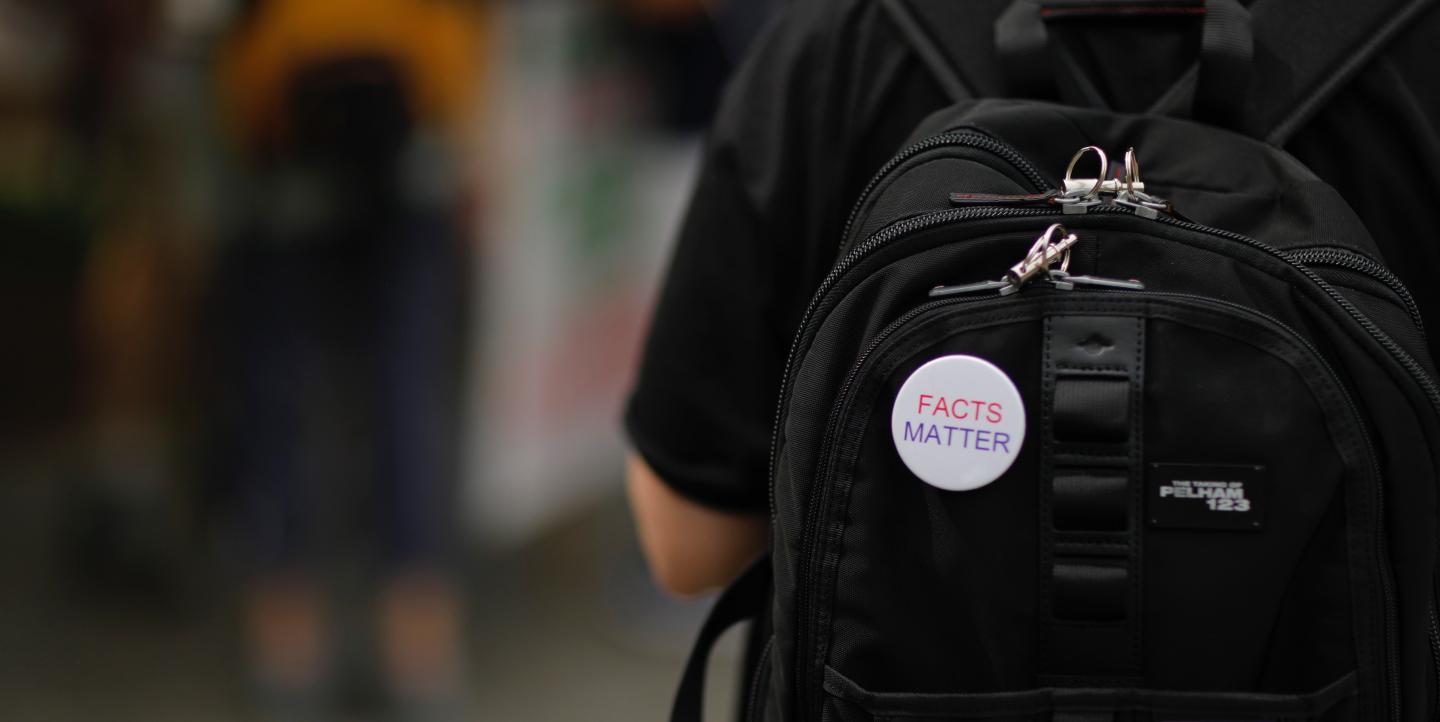The Poynter Institute’s International Fact-Checking Network (IFCN) has issued a call to action.
Equipped with the right tools and methods, anyone can become a skilled fact-checker and help stem the tide of misinformation on the web. A hub for this effort, FactCheckingDay.com offers an arsenal of resources to help deter digital deceit.
“Misinformation knows no borders,” says IFCN’s new director, Baybars Orsek. “[Professional] fact-checkers can’t do it alone.”
“Initiatives such as IFCN and others should work to empower fact-checkers and build collaborative actions to tackle this global phenomenon,” adds Orsek, co-founder of Turkey’s political fact-checking project Dogruluk Payi. “Everyone has a responsibility and capacity to contribute to the cause.”
Orsek warns that hoaxes, conspiracy theories and rumors can be fatal. “In many parts of the world, dozens of people have lost their lives due to spread of misinformation at viral speeds, even leading to humanitarian crisis in some countries,” he said.
In November 2018, the BBC reported that fake rumors of children being kidnapped and having their organs harvested spread through WhatsApp in a small Mexican town. A mob burned two men to death as a result, despite pleas from police that they were minor offenders, not child abductors.
Rumors have led to violence in other parts of the world as well, including India, Myanmar and Sri Lanka, to name a few.
CNN’s chief media correspondent Brian Stelter has declared false reports “a plague on the web,” and advises applying a "triple check rule” before sharing links. Stelter believes it is up to all internet users — not just professionals — to spot fakes and avoid spreading them.
That's where FactCheckingDay.com enters the picture, as a tool to train everyday users to fight online misinformation.
Content is designed to target four audiences: journalists, educators, students and news consumers.
Here is a sampling of what it has to offer:
-
Interactive EduCheckMap: This tool has 200 resources available in 15 languages from 57 fact-checking platforms, all related to media literacy and fact-checking instruction. Among the offerings, EduCheckMap includes a lesson plan on how fake news spreads, a video on fact-checking the internet and an interactive quiz to help distinguish fake from real news. This site helps users connect with fact-checkers around the world.
-
Navigating Digital Information Crash Course: This 10-episode video series from Crash Course promotes hands-on skills to help evaluate online information. Hosted by John Green, bestselling author and internet personality, viewers will learn to evaluate online information using the same processes as fact-checkers, and to better understand how common platforms manage information.
-
Hands-on Fact-Checking Short Course: This 90-minute, free program can be self-directed or used as classroom resource. It includes an overview of fact-checking best practices, developed by experienced fact-checkers and journalists.
-
Other articles ready-made for media training workshops or newsrooms: The online hub offers a plethora of other articles on the latest news and methods for fact-checking across a variety of platforms. Articles offered include “10 tools and tricks to verify Instagram Posts,” “Three ways to avoid amplifying conspiracy theories” and “Preparing for the Worst: How to stay ready for the next big viral hoax.”
The IFCN was founded at Poynter in 2015 to help coordinate and support the growing number of fact-checking initiatives. Its chief objectives are to establish a code of principles for the profession, promote best practices and monitor the impact of fact-checking among members. The wide geographical mix ranges across the globe, with member organizations from Croatia, Greece, France, Brazil and Kazakhstan, to name a few.
All IFCN signatories must pass a rigorous assessment process, based on five principles that include transparency of sources, funding and methodology. Their name is added to the list only when they are fully compliant.
Orsek would like to see IFCN become more active in helping fact-checkers in places where press freedom is at stake, and to see fact-checking “expand to every corner of the earth.”
Main image CC-licensed by Pixabay via Thomas Ulrich.


